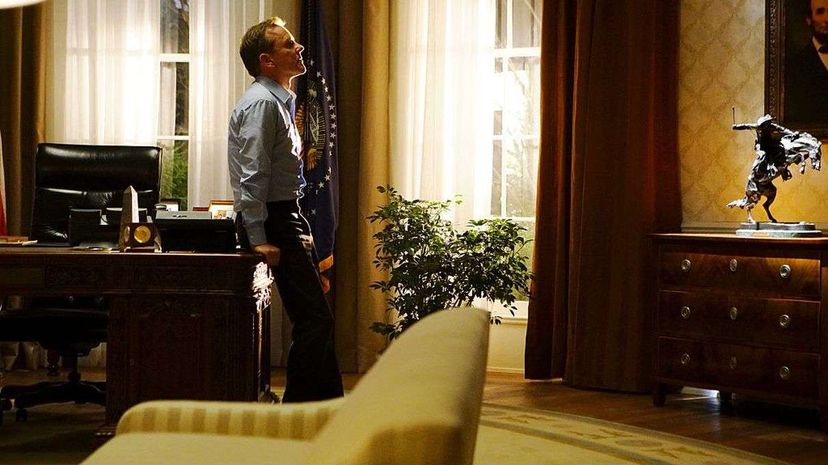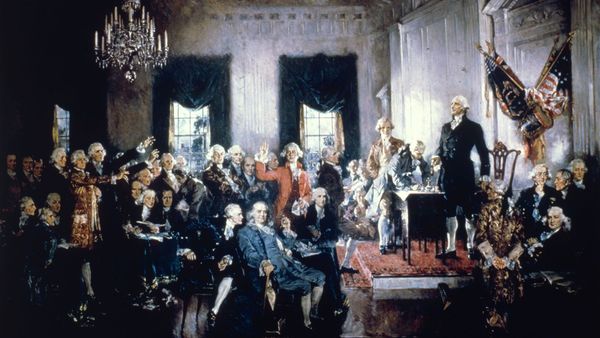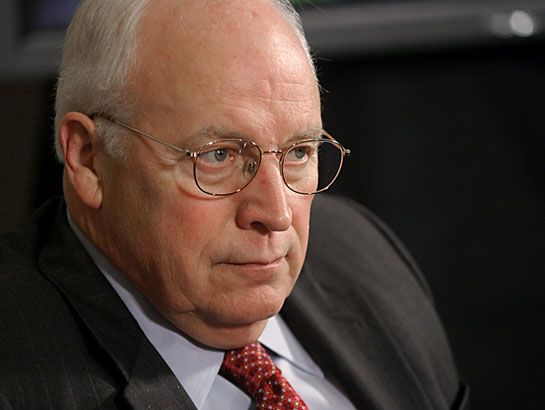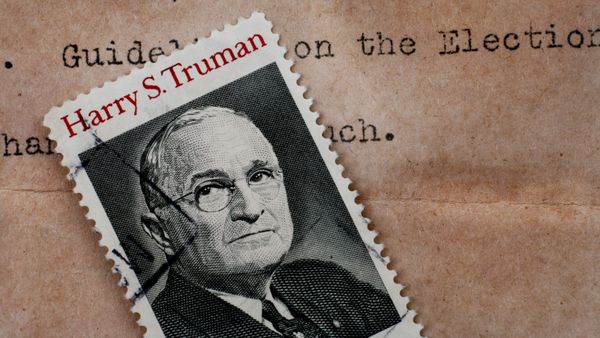
Kiefer Sutherland's butt-kicking character Jack Bauer was a former Green Beret and ex-CIA agent who outsmarted or outgunned dozens of deadly terrorists during his nine seasons on "24."
Sutherland's newest hero, Tom Kirkman, is no Jack Bauer. In the upcoming ABC drama "Designated Survivor", Sutherland plays Kirkman, a mild-mannered U.S. Secretary of Housing and Urban Development who is swept into the Oval Office as a wildly unprepared commander in chief after the president, vice president and most of Congress are killed in a massive terrorist attack.
Advertisement
As crazy and scary as it sounds, this plotline is based in reality. Every January, when the president delivers the State of the Union address, one member of the Cabinet is selected by the White House chief of staff as the "designated survivor." While the rest of the Cabinet members attend the speech — delivered in front of a joint session of Congress that includes all nine Supreme Court justices and most elected federal officials — the survivor is flown to a secure location in the event that the Capitol is attacked and the entire government is wiped out.
Morbid, yes. And more than a little surreal for the low-level Cabinet appointee who gets picked as the lone survivor. One minute you're the semi-anonymous Secretary of the Interior, the next you're assigned a Secret Service detail and flown to a safe house where you nervously watch the State of the Union next to a guy who is handcuffed to "the Football," the 45-pound (20-kilogram) briefcase holding the nuclear codes. Pass the guacamole?
Former Secretary of Agriculture Dan Glickman never forgot his stint as the designated survivor in 1997 during one of President Bill Clinton's addresses. He was flown in an Air Force jet to New York City so he could watch the State of the Union in his daughter's apartment along with some ultra-serious Secret Service dudes and a doctor.
After the speech was over, the Secret Service unceremoniously left and Glickman and his daughter went out for some late-night Japanese food. During their meal, a nasty sleet storm blew in and the almost-president and the almost-first daughter couldn't get a cab back home.
"So we had to walk eight to 10 blocks back to her apartment in the freezing cold and sleet,"Glickman told the website Mic. "The irony was, here I was just a few minutes earlier, almost the most powerful person in the country, and now I couldn't even get a cab. There's a great lesson there in the impermanence of power."
For the 2016 State of the Union, Homeland Security Secretary Jeh Johnson was the designated survivor. He became the 34th Cabinet member to fill the post since the first designated survivor names became public in 1984 during the Reagan administration. The name of the survivor isn't disclosed until the day of the speech, and the alternate viewing location is top secret.
According to the Presidential Succession Act of 1947, Cabinet members are next in line for the presidency after the vice president, the speaker of the house and the president pro tempore of the Senate. The designated survivor never holds one of those positions, nor is he/she a high-ranking cabinet member like the secretary of state or defense.
The tradition is believed to date back to at least the 1960s and the height of Cold War tensions with the Soviet Union. In the era of the Cuban Missile Crisis, it wasn't unthinkable that a Soviet nuclear warhead would be aimed at the Capitol.
The plot of "Designated Survivor" plays on fresher fears, the post-9/11 threat of another catastrophic terrorist attack on U.S. soil. Sutherland's character is sworn in while the Capitol still burns. Not only must he unify and calm the nation, but also seek out and punish the perpetrators — a tall order for a low-level functionary more accustomed to regulatory agendas and ribbon cuttings.
According to the Los Angeles Times, the designated survivor isn't quite so helpless. Apparently the potential presidential stand-in receives intensive training in the weeks before the State of the Union to ease some of the shock of an unexpected transition of power. Not that anybody would look forward to such an instant "promotion."
"I'd have been the first Jewish president, which would have been kind of nifty," Glickman told Mic. "But I liked President Clinton a lot, so I didn't want it to happen."
Advertisement


